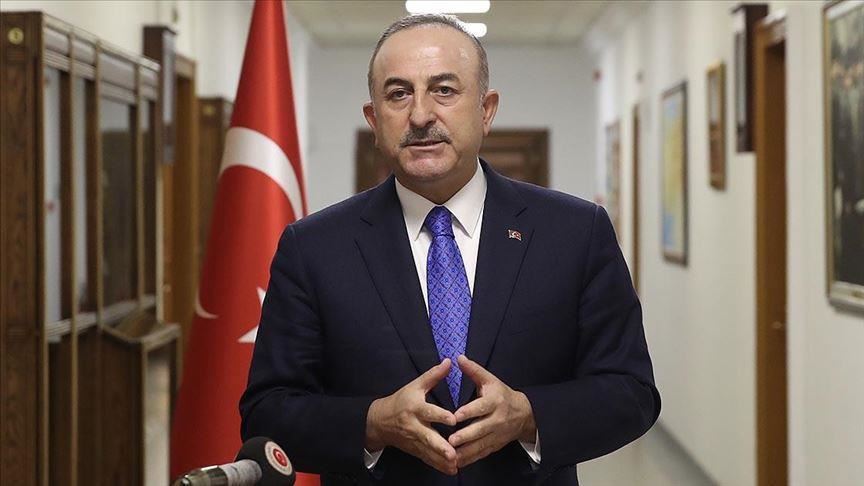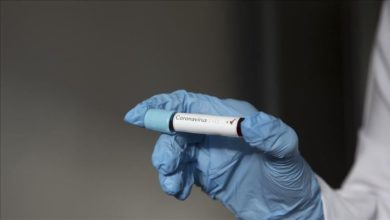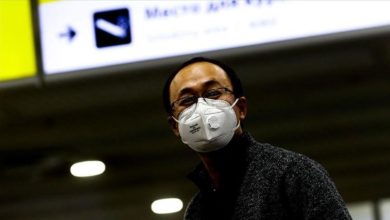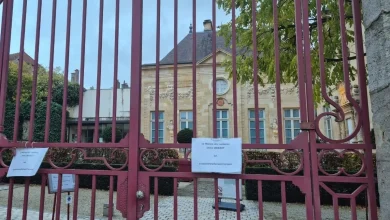
A global response is required in the face of the novel coronavirus pandemic which continues to spread worldwide, Turkish Foreign Minister Mevlut Cavusoglu said Thursday.
In an op-ed published in The Washington Times, Cavusoglu said Turkey is among the countries that are taking “strong” measures to fight the coronavirus, which has infected more than one million people globally.
“A global challenge requires a global response, first on the public health front and then in the economy, and over the long haul in reforming international institutions and the way countries support them,” he said.
He called for international institutions to assume an effective role in financial and medical equipment assistance as well as the protection of fragile communities, irregular migrants and refugees, and support to host countries.
“Global supply networks and cargo transfers must run unhindered,” he added.
The minister also took aim at sanctions imposed by world powers, saying they not only hurt the designated countries but their neighbors as well.
“Sanctions as a blunt policy tool must be evaluated from the humanitarian point of view. At a time of a pandemic, this risk is even higher,” said Cavusoglu, citing U.S. sanctions on Iran. “Developing and least-developed countries, notably in Africa, must not be left behind.”
In recent days, Iran has been asking the U.S. to lift sanctions on humanitarian grounds after getting hurt by the virus. It has more than 50,000 infections and 3,160 deaths, according to data from Johns Hopkins University.
‘Ending the conflicts’
Cavusoglu said ending the conflicts around the world, which he said claim human lives and hurt ecosystems and economies, is a “cross-cutting theme in the much-needed” global response.
“We therefore call on the international community to step down in all conflicts, cease hostilities, and search earnestly for dialogue and reconciliation, including in the Middle East. Geopolitical competitions and political grievances make little sense when the world is fighting for its very health.
“This call cannot go unheeded if we all take a moment to support it worldwide,” Cavusoglu wrote.
The top diplomat said the leaders of this generation are defining the future of the world order by the decisions they take today with regard to the pandemic.
“The seeds we sow today will soon confront us as full-blown realities,” he said.
“The reality of a rules-based global system, a network of functioning nation states that are resilient and accountable, economies that leave no one behind and benefit all, supported by fit-for-purpose international organizations, all focusing on the well-being of the people irrespective of their nationality, faith or race can be within reach,” Cavusoglu added.
Global system
The top diplomat also criticized the global system, which he said had been in ruins before the pandemic.
He cited President Recep Tayyip Erdogan’s call for reform in the structure and functioning of the UN Security Council, which has been criticized by Turkey for serving the interests of its five permanent members.
“Turkey, for one, had been making the case that we needed to reform the system. We called it “the world is larger than five” agenda, referring to the outdated composition of the UN Security Council but not stopping there.
“As a country that had to address unending conflicts and human misery in our close neighborhood and home to the largest refugee population in the world, we have known that the system was not working,” he said.
He warned that the economic impact of the pandemic will be daunting and can be long-term.
“The impact on existing state fragilities, on politics and security will surely encumber governments around the world,” said Cavusoglu. “We have yet to see the light at the end of this tunnel and we cannot wait for it. It is a moment of reflection but also leadership and action.”
G20’s role in fighting pandemic
Cavusoglu also praised the role of G20 leaders who he said committed to act in solidarity in the fight against the disease and safeguard the global economy and unrestricted trade.
“The extension of SWAP agreements have been among significant measures agreed by the G20,” he wrote.
He said Turkey’s proposal to form a Senior Officials Coordination Group was embraced by the G20 leaders “as we need to coordinate closely on issues such as border management and repatriation of citizens.”
He thanked Canada for presenting initial ideas on its modalities, adding: “The G20 is proving again to be the right format in global crisis management.”
After first appearing in the Chinese city of Wuhan in December, the novel coronavirus, officially known as COVID-19, has spread to at least 180 countries and regions.
The global death toll from the virus now exceeds 52,700 with more than 1 million confirmed cases and 210,055 recoveries, according to U.S.-based Johns Hopkins University.
While the epicenter has shifted from China to Europe, the highest number of cases for any country are in the U.S. with 238,820.





